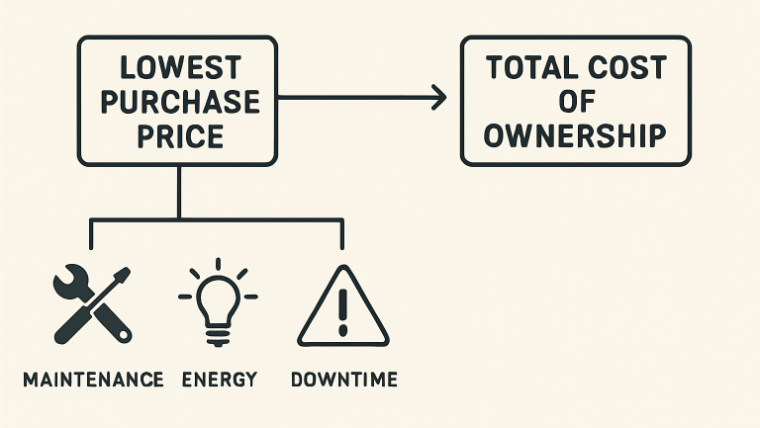Table of Contents
Why Business Entity Structure Matters
Deciding on a business entity structure isn’t just a technical step—it’s a vital business decision that will influence nearly every element of your company’s operations. For example, selecting an LLC, corporation, or partnership can significantly affect your legal exposure, taxes, administration, and even your ability to bring on investors or expand into new markets. According to the Small Business Administration, limited liability structures, especially LLCs and corporations, are overwhelmingly popular among new businesses, with about 8 out of 10 choosing them. Why? These entities create a safe, legal wall between personal and business assets, making attracting customers, lenders, and potential partners easier. The proper structure also streamlines hiring and contract negotiation processes, enabling the business to grow more securely and responsibly. Among the earliest requirements, appointing a reliable registered agent service ensures your company always receives crucial government notices and legal documents. This helps streamline compliance communications while enhancing privacy and professionalism. Without this essential step, a business risks missing urgent legal deadlines and forfeiting its good standing with the state. In the beginning, strategic entity decisions and proper compliance habits will pay dividends long-term, laying the groundwork for stability and easier management as your company matures.

Formation Steps, Simplified
Setting up a compliant business entity can appear daunting, but understanding each key milestone simplifies the entire process. The initial step is selecting a business name that uniquely identifies your company and is available for registration in your jurisdiction. Many entrepreneurs find this step fun but sometimes overlook due diligence on unused or trademarked names—mistakes that can lead to costly rebranding down the road. Once settled, preparing and filing formation documents—usually called Articles of Incorporation for corporations or Articles of Organization for LLCs—is the following formal requirement. These documents outline essential facts about your business, including address, ownership, and purpose. After paperwork, every state mandates the appointment of a registered agent with a physical address in the state. This critical role cannot be skipped. Next, applying for an Employer Identification Number (EIN) from the IRS is essential, even if you plan to have no employees, as it is usually required for taxes, banking, and vendor setup. Finally, adopting internal governance documents such as operating agreements or bylaws helps prevent disputes and clarifies rights and duties among owners. By approaching these tasks methodically, businesses build a solid—and compliant—foundation for growth.
Top Compliance Obligations for Businesses
Once your entity is formed, state and, in some cases, federal authorities expect a steady cadence of compliance. Annual or biennial reporting requirements are universal for most corporations and LLCs in the US. Even if your business is not yet operational or hasn’t turned a profit, skipping these filings can lead to fines or even administrative dissolution—the automatic revocation of your right to do business. While the paperwork may seem minor, it’s easy to forget during everyday operations. Essential obligations include submitting regular reports that verify ownership, contact information, and other structural details, paying state renewal and maintenance fees, and keeping your registered agent information current and accurate. Some states require additional steps, such as publishing newspaper notices or maintaining specific records on file. Developing a routine to revisit state websites, mark recurring deadlines in digital calendars, and review your obligations when operations change helps your business maintain good standing for years.
Annual Reports and State Filings
Filing accurate and timely annual reports is a task nearly all business owners will face. Each state has unique deadlines, required forms, and fees, so keeping a close eye on state-specific instructions is key. For example, many state agencies offer comprehensive guidance via their websites and user-friendly online portals to help filers manage requirements. Virtually every formal business structure must file some report, regardless of size or profit. Failing to pay attention to details—such as address changes, updated ownership, or notification preferences—can create ripple effects, sometimes impacting your ability to obtain loans or sign new contracts. In practice, most annual filings involve confirming current business addresses, the names and contact info of officers or members, and the identity of the registered agent. With so much depending on these filings, it’s wise to configure calendar alerts and use reminders from professional service providers. Inadvertent noncompliance doesn’t just cost money—it can put your reputation and operations at risk. By allocating a set time each year to review these obligations as part of routine administrative maintenance, you can ensure your company stays in good standing and avoids headaches.
How Registered Agents Work
A registered agent is a critical yet often undervalued part of your business entity’s legal backbone. The agent links your company to state and federal agencies as the official recipient of government, tax, and legal documents. Each state requires business entities to have a registered agent with a physical street address where official correspondence can reliably be delivered during business hours. Failing to maintain a current agent can mean lost documents, missed lawsuits, or even outright dissolution. Many owners choose professional third-party registered agent services because they ensure privacy (your home address won’t be listed on public documents), consistency (someone is always available during business hours), and compliance expertise (providers can flag new obligations or filings as they arise). This is especially critical for businesses operating in multiple states: each jurisdiction where you register requires a local agent. Choosing managed registered agent solutions creates efficiency, adds a layer of protection, and allows business owners to focus on their core operations rather than logistics.
Avoiding Common Compliance Mistakes
Many small business owners underestimate how easily compliance can slip through the cracks. Common mistakes include missing deadlines for annual reports, failing to update records when key details change, ignoring correspondence from state agencies, or allowing registered agent information to lapse. These issues, though seemingly minor, can lead to late fees, reputational harm, or even the loss of the ability to operate legally.
- Create a dedicated compliance calendar and schedule automated reminders for all critical state and federal filing deadlines.
- Set aside a digital folder (or use a secure platform) for storing all compliance paperwork, receipts, and notices.
- Conduct quarterly internal reviews to ensure nothing slips by, especially after moves, leadership changes, or growth milestones.
- Sign up for state agency alerts, and consider leveraging the notification service included with many third-party registered agent providers.
By making compliance checks a regular part of your company workflow, you can avoid scrambling after missed deadlines or costly mistakes. The lesson is simple: a little prevention now brings peace of mind and financial savings for your business down the road.
Tips for Long-Term Entity Success
Growing a compliant, resilient business is as much about habits as a strategy. Start by holding annual compliance reviews and using digital platforms to centralize key documents and reminders. These organizational steps help your company adapt quickly to regulatory changes and minimize friction during expansion or restructuring. Professional expertise is invaluable: legal and accounting advisors can flag potential compliance risks, especially when taking on new partners, branching into new markets, or navigating leadership transitions. Building compliance into onboarding and ongoing employee training ensures your team is aligned with best practices, reducing risk from internal oversight. In the fast-paced world of entrepreneurship, continuous improvement and openness to learning keep your enterprise agile and protected. Whether you’re a sole proprietor poised for growth or a multi-state organization scaling new heights, this is true.
Resources for Business Owners
Keeping up with compliance doesn’t have to be a solo effort. Government agencies like the Small Business Administration maintain regularly updated resource libraries, including formation, maintenance, and compliance guides. States also publish checklists and Q&A pages to demystify tasks that often trip up business owners. Keeping these resources bookmarked—or signing up for agency newsletters—helps you stay updated with changing rules. Reliable information, reminders, and digital tools tailored to small business needs can dramatically simplify compliance. As your venture evolves, return to these resources and review your practices regularly. Staying informed, organized, and methodical about compliance lays the groundwork for long-term stability and success, keeping your company focused on growth while minimizing the chance of costly surprises.


